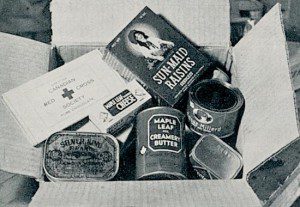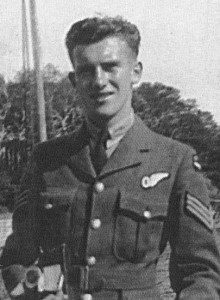
The Ides of March brought a shift in the escape committee’s manufacturing and preparation. Where they had previously focused on the fashioning of tunnelling tools and manipulation of materiel for underground construction, kriegie engineers began transforming food tins into water bottles for the escapers.
Roger Bushell called for one last levy on the Red Cross parcels, so that a cooking crew in Hut 112 could mix every ounce of sugar, cocoa, raisins, milk and biscuits into a stewing pot to create a concoction of high-calorie fudge for the escapers to consume outside the wire.

Unlike the kriegies with higher linguistic capabilities (working with German scholar Gordon Kidder in his so-called “culture appreciation classes”) RCAF navigator John R. Harris prepared himself among the “hard-arsers” masquerading as a Hungarian ironworker in transit. He was number 179 on the escape list, should his turn arrive.
“We spent the (last week) in a frenzy of secret activity,” John Harris wrote, “as we prepared our clothes, acquired quantities of compact, nourishing food, and collected our forged papers,” Harris wrote. “I was provided a with a very official looking Nazi document which affirmed that I was Antoine Zabadose.”
Meanwhile section leaders Robert Ker-Ramsey and Johnny Marshall began assembling the escapers in small groups to explain – when the time came – how to get through the tunnel.
“Most of us had never been beyond the trapdoor at the mouth of ‘Harry,’ Harris wrote, “but we were given a cook’s tour of the tunnel, so that we would have some idea of what faced us once we went below ground.”